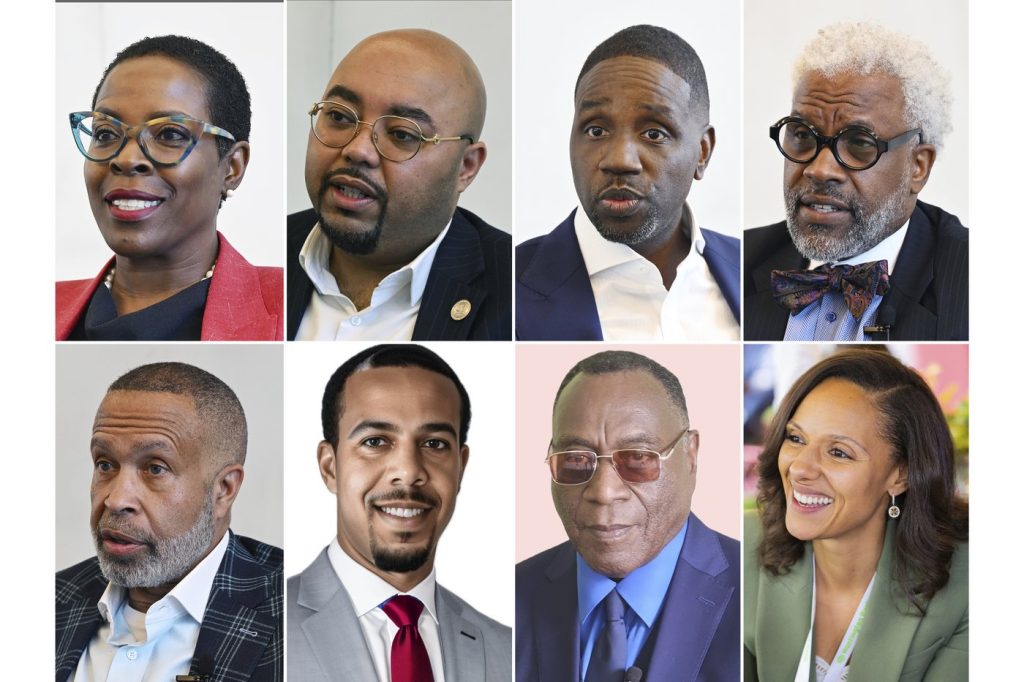DETROIT (AP) - For the first time since 2012, voters in Detroit will head to the polls without Mike Duggan’s name on the mayoral ballot. This primary election, scheduled for Tuesday, features nine candidates competing to succeed Duggan, who has served as mayor since the city emerged from the largest municipal bankruptcy in U.S. history. Duggan has been credited with revitalizing Detroit, overseeing a massive anti-blight initiative and advancing affordable housing projects across the city.
The top two candidates from this nonpartisan primary will advance to the general election in November to determine who will take office in January 2024. Duggan chose not to run for reelection as he pursues an independent campaign for governor of Michigan in the upcoming election.
The robust field of candidates includes notable figures such as City Council President Mary Sheffield, current and former council members, a megachurch pastor, and a popular former police chief. Mary Sheffield is considered the leading candidate in this race, having generated substantial campaign contributions since her election to the council in 2013. She has held the position of council president since 2022.
Saunteel Jenkins is another prominent candidate who served a term on the City Council from 2009 to 2013 and later became the CEO of a nonprofit organization focused on providing utility assistance to families in need. Both Jenkins and Sheffield have the potential to make history as Detroit's first female mayor.
Current Councilman Fred Durhal III, who has served on the council since 2021 and was previously a state representative from 2014 to 2019, is also vying for the position. In addition, the Rev. Solomon Kinloch Jr., senior pastor of Triumph Church in Detroit with a congregation exceeding 40,000, is in the running. Kinloch has prior experience as an autoworker and UAW member.
Former police chief James Craig, who led the Detroit Police Department from 2013 until his retirement in 2021, is another candidate making a bid for mayor. Craig previously attempted to enter politics at the state level but faced setbacks, including being unable to appear on the Republican ballot for governor in 2022 due to issues with campaign petitions. He has shifted focus to the mayoral race after dropping a bid for an open U.S. Senate seat earlier this year.
Other candidates include attorney Todd Perkins, digital creator DaNetta Simpson, business owner Joel Haashiim, and entrepreneur John Barlow, adding to the diversity of the field.
The stakes are high for Detroit's next mayor, who will assume leadership of a city that has made significant strides since Duggan took office in 2013. During his tenure, Detroit restructured about $7 billion in debt and emerged from bankruptcy in December 2014. After several years of fiscal management by a state-appointed oversight board, the city has maintained a balanced budget for 12 consecutive years.
Detroit has experienced a resurgence in population, with the 2023 census reporting a rise to 633,218 residents, marking the first population growth in decades. Developers have also constructed hundreds of affordable housing units, and more than 25,000 vacant and dilapidated properties have been demolished, which suggests progress in combating blight.
Furthermore, the city is increasingly becoming a tourist destination, highlighted by the record-setting attendance of over 775,000 at the upcoming 2024 NFL draft in downtown Detroit. Signs of revitalization are evident with new hotels opening and significant renovation projects like the historic Michigan Central train station, transforming it into a mobility project hub after a six-year, multimillion-dollar renovation funded by the Ford Motor Company.
Despite its ongoing recovery, Detroit remains economically linked to the auto industry, which now faces challenges due to tariffs imposed by the previous administration. This year, Stellantis, known for manufacturing Jeep and Ram vehicles, reported a preliminary net loss of $2.68 billion in the first half of the year, largely attributed to these tariffs and other financial burdens.











